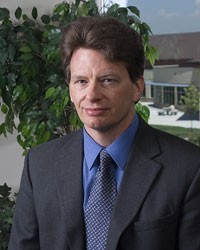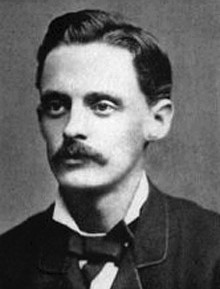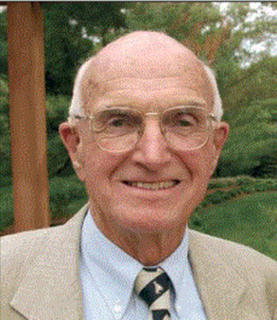A Quote by Ivar Giaever
Understanding truth is the primary objective of science, not doing good for the world.
Quote Topics
Related Quotes
Without a thorough and deeply rooted understanding of the biblical view of truth as revealed, objective, absolute, universal, eternally engaging, antithetical and exclusive, unified and systematic, and as an end in itself, the Christian response to postmodernism will be muted by the surrounding culture or will make illicit compromises with the truth-impoverished spirit of the age. The good news is that truth is still truth, that it provides a backbone for witness and ministry in postmodern times, and that God's truth will never fail.
If science proves some belief of Buddhism wrong, then Buddhism will have to change. In my view, science and Buddhism share a search for the truth and for understanding reality. By learning from science about aspects of reality where its understanding may be more advanced, I believe that Buddhism enriches its own worldview.
Things that are good are good, and if one is responding to that goodness one is in contact with a truth from which one is getting something. The truth is doing us good. The truth of the sunshine, the truth of the rain, the truth of the fresh air, the truth of the wind in the trees, these are truths. And they are always accessible!
But myth is something else than an explanation of the world, of history, and of destiny. Myth expresses in terms of the world - that is, of the other world or the second world - the understanding that man has of himself in relation to the foundation and the limit of his existence. Hence to demythologize is to interpret myth, that is, to relate the objective representations of the myth to the self-understanding which is both shown and concealed in it.
Science fiction, because it ventures into no man's lands, tends to meet some of the requirements posed by Jung in his explorations of archetypes, myth structures and self-understanding. It may be that the primary attraction of science fiction is that it helps us understand what it means to be human.
The primary objective of copyright is not to reward the labor of authors, but ‘[t]o promote the Progress of Science and useful Arts.' To this end, copyright assures authors the right to their original expression, but encourages others to build freely upon the ideas and information conveyed by a work. This result is neither unfair nor unfortunate. It is the means by which copyright advances the progress of science and art.
But science can only be created by those who are thoroughly imbued with the aspiration toward truth and understanding. This source of feeling, however, springs from the sphere of religion. To this there also belongs the faith in the possibility that the regulations valid for the world of existence are rational, that is, comprehensible to reason. I cannot conceive of a genuine scientist without that profound faith. The situation may be expressed by an image: science without religion is lame, religion without science is blind.
The total liberation and unification of Africa under an All-African Socialist Government must be the primary objective of all Black revolutionaries throughout the world. It is an objective which when achieved, will bring about the fulfillment of the aspirations of Africans and people of African descent everywhere. It will at the same time advance the triumph of the international socialist revolution.
Science fiction is a weird category, because it's the only area of fiction I can think of where the story is not of primary importance. Science fiction tends to be more about the science, or the invention of the fantasy world, or the political allegory. When I left science fiction, I said "They're more interested in planets, and I'm interested in people."
In truth, opinion may be taken for understanding; understanding cannot be taken for opinion. How so? Surely because opinion may be deceived; understanding cannot be. If it could, it would not be understanding but opinion. For true understanding has not only certain truth, but the knowledge of truth.
If the question were, "What ought to be the next objective in science?" my answer would be the teaching of science to the young, so that when the whole population grew up there would be a far more general background of common sense, based on a knowledge of the real meaning of the scientific method of discovering truth.
Is the Church inimical to science? Growing up as a Catholic and a scientist - I don't see it. One truth is revealed truth, the other is scientific truth. If you really believe that creation is good, there can be no harm in studying science. The more we learn about creation - the way it emerged - it just adds to the glory of God. Personally, I've never seen a conflict.


































